
The Liberia national football team, nicknamed the Lone Stars, represents Liberia in men's international football and is controlled by the Liberia Football Association. Although the nation produced the 1995 FIFA World Player of the Year, George Weah, its football team has never qualified for the FIFA World Cup and has qualified for the Africa Cup of Nations just twice—in 1996 and 2002. It is a member of both FIFA and the Confederation of African Football (CAF).

The Ethiopia national football team, nicknamed Walia, after the Walia ibex, represents Ethiopia in men's international football and is controlled by the Ethiopian Football Federation, the governing body for football in Ethiopia. The team has been representing Ethiopia in regional, continental, and international competitions since its founding in 1943. The Walias play their home games at Addis Ababa Stadium located in the capital city of Addis Ababa. They are currently ranked 150th in the world according to the FIFA World Rankings and 44th in CAF.

The Burundi national football team, nicknamed The Swallows, represents Burundi in international football and is controlled by the Football Federation of Burundi. The team has never qualified for the World Cup. Burundi previously did come very close to qualifying for the 1994 Africa Cup of Nations, losing only on penalties to Guinea in a playoff. However, in 2019, it qualified for the first time, and took part in the Africa Cup of Nations finals in Group B, but lost all its matches and left from the group stage without scoring a single goal.

The Djibouti national football team, nicknamed the Riverains de la Mer Rouge, is the national football team of Djibouti. It is controlled by the Djiboutian Football Federation and is a member of the Confederation of African Football (CAF) and the Union of Arab Football Associations (UAFA). The Djibouti national football team's first win in a full FIFA-sanctioned international match was a 1–0 win vs. Somalia in the first round of the 2010 FIFA World Cup qualification.
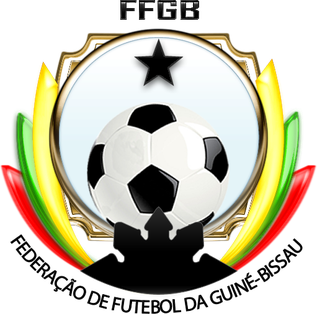
The Guinea-Bissau national football team represents Guinea-Bissau in men's international association football and it is controlled by the Football Federation of Guinea-Bissau, The team has never qualified for the FIFA World Cups but qualified for the Africa Cup of Nations four times, making their debut in 2017. The team is a member of both FIFA and Confederation of African Football (CAF).
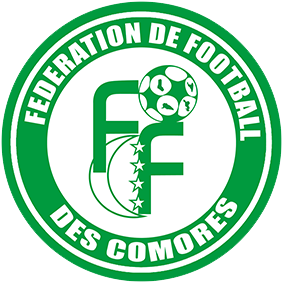
The Comoros national football team represents the Comoros in international football and is controlled by the Comoros Football Federation. It was formed in 1979, joined the Confederation of African Football (CAF) in 2003, and became a FIFA member in 2005. Comoros qualified for their first major tournament in 2021, after their 0–0 draw with Togo assured them of a place in the 2021 Africa Cup of Nations.

The El Hadj Hassan Gouled Aptidon Stadium is a multi-use stadium in Djibouti City, Djibouti. It is currently reserved mostly for football matches. The stadium has a capacity of hosting up to 20,000 fans. The stadium was designed by prolific Malaysian architect, Michael KC Cheah. As of April 2007, the Stade has an artificial turf pitch courtesy of FIFA's Win in Africa development programme. It is currently the home ground of the Djibouti national football team. The stadium is home to many sports federations in Djibouti, including the Djiboutian Football Federation.

The Qatar Football Association is the governing body of football in Qatar. The QFA was founded in 1960 and is based in Doha, Qatar. It became a member of FIFA in 1963 and of AFC in 1967. The Qatar Football Association organizes the main leagues of the Qatar football league system: Qatar Stars League, Qatari Second Division, including domestic cups: Qatar Cup, Emir of Qatar Cup, Sheikh Jassim Cup, Qatari Stars Cup and Qatar FA Cup. The association is also responsible for the men's, U-17, U-20, U-23, women's national teams and the local women's, youth and futsal football leagues.

The Cameroon national women's football team, also known as the Indomitable Lionesses, is the national team of Cameroon and is controlled by the Cameroon Football Association. They finished second in the 1991, 2004, 2014, and 2016 Africa Women Cup of Nations, participated in the 2012 Olympic Games and have competed in their first ever FIFA Women's World Cup in 2015.
Lazarus Kaimbi is a Namibian professional footballer who plays as a striker for Blue Waters.
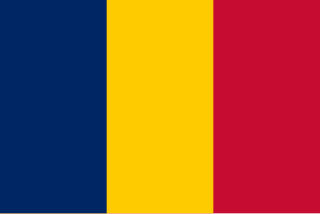
Football is by far the most popular sport in Chad. Many of top Chadian footballers have played professionally in France. According to one source, Nambatingue Tokomon, known as "Toko", played for renowned French soccer clubs, including Paris St. Germain, in the 1970s and 1980s. Abdoulay Karateka also played for Paris St. Germain. Ndoram Japhet played for Nantes and Monaco in the 1990s. The national team represents football in Chad internationally, however, the squad has never qualified for the FIFA World Cup or the African Cup of Nations. They did not enter qualification tournaments for the World Cup until 2002.

The Botswana women's national football team is the women's national football team of Botswana and is controlled by the Botswana Football Association. They qualified for their maiden Africa Women Cup of Nations (AWCON) tournament that will be held in Morocco in July 2022.

The South Sudan national football team represents South Sudan in international football and is controlled by the South Sudan Football Association, the governing body for football in South Sudan.
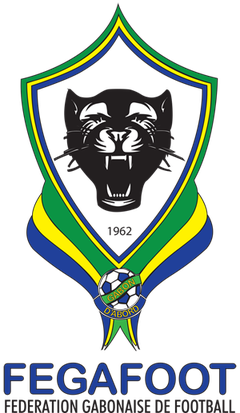
The Gabon women's national football team is the national women's football team of Gabon and is overseen by the Gabonese Football Federation. They represent Gabon in women's international football. They have never qualified for the FIFA Women's World Cup or the Africa Women Cup of Nations.

The Djibouti women's national football team represents the country in international competitions. Football is organised by the Djiboutian Football Federation, with women's football formally organised in the country in 2002, and a national team was later created.

The Kenya women's national football team represents Kenya in women's football and is controlled by the Football Kenya Federation.

The Rwanda women's national football team represents Rwanda in women's association football and is controlled by the Rwandese Association Football Federation. It had to date been scheduled to compete in one major tournament, the inaugural Women's Challenge Cup held in Zanzibar in October 2007, but the event was ultimately canceled. It has finally debuted in February 2014 against Kenya. The team is nicknamed The She-Amavubi.
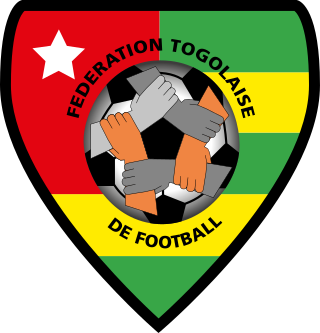
The Togo women's national football team represents Togo in international women's football since 2006. It is governed by the Togolese Football Federation (FTF), the governing body of football in Togo. The team has played five FIFA-recognised matches, in 2006 and 2007, before reappearing in the 2018 WAFU Women's Cup, set in Abidjan, Ivory Coast. Their manager since January 2018 is Kaï Tomety. Togo's home stadium is the Stade de Kégué, located in Lomé.
The 2016 African U-17 Women's World Cup Qualifying Tournament was the 5th edition of the African U-17 Women's World Cup Qualifying Tournament, the biennial international youth football competition organised by the Confederation of African Football (CAF) to determine which women's under-17 national teams from Africa qualify for the FIFA U-17 Women's World Cup. Players born on or after 1 January 1999 were eligible to compete in the tournament.
The 2018 African U-17 Women's World Cup Qualifying Tournament was the 6th edition of the African U-17 Women's World Cup Qualifying Tournament, the biennial international youth football competition organised by the Confederation of African Football (CAF) to determine which women's under-17 national teams from Africa qualify for the FIFA U-17 Women's World Cup.


















